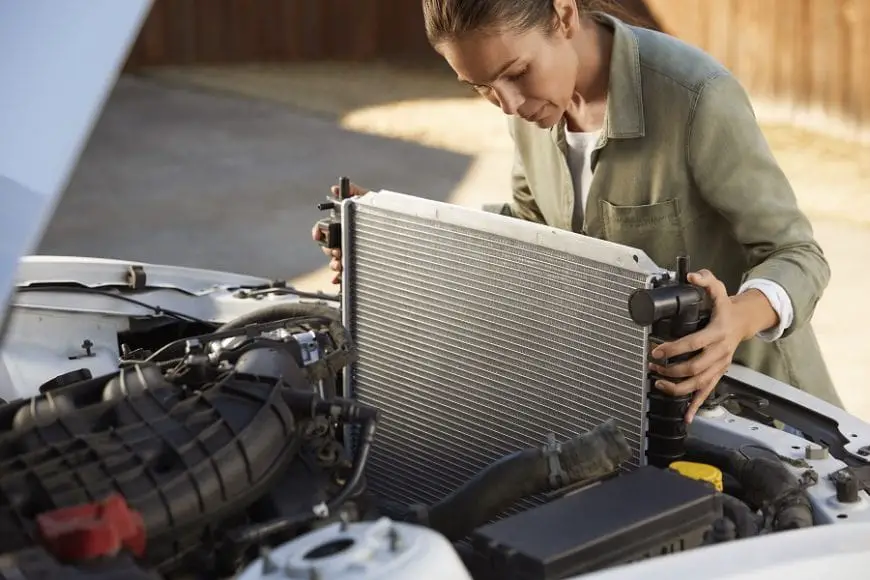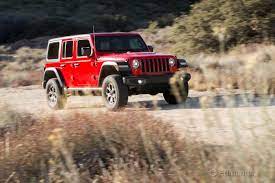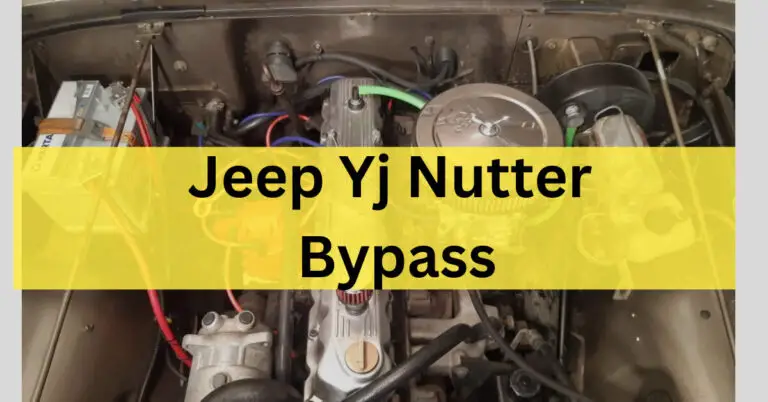Why Is My Jeep Wrangler Fan So Loud? Fixed In 2023
If you notice that the fan in your Jeep is making more noise than usual, this could indicate a problem with your vehicle’s cooling system.
A working fan will typically produce a consistent, low-humming sound. The cause of this problem may vary, and it is critical to address it as soon as possible to avoid further damage.
The majority of issues that result in a loud fan in a Jeep are related to the cooling system, with the radiator being a common source of problems.
The radiator fan assembly is often the culprit, but issues with sensors or thermostats can also produce a loud noise. Additionally, blockages in the radiator tubes or lines may cause the fan to run loudly.
If you want to keep your Jeep’s engine running smoothly, you must be aware of any unusual noises coming from the fan.
Ignoring this problem can be harmful to your vehicle. To keep your engine running smoothly, it’s critical to identify the source of the loud fan and take the necessary steps to resolve it.
Table of Contents
Why Is My Jeep Fan Running So Loud? How To Fix It Guide:
A frequent cause for a loud running fan in a Jeep is a malfunctioning or damaged fan clutch.
This component, which regulates the fan speed based on the level of strain on the engine (or temperature, depending on the model), plays a crucial role in the vehicle’s cooling system.
If the fan clutch is not operating efficiently, you may experience the following signs:
- Your Jeep’s cooling fan produces excessive noise while idling.
- The cooling fan blades are hard to rotate manually. (Please exercise caution when attempting this; ensure the engine is off)
- The cooling fan rotates slowly or not at all, even when the engine is running at high speed.
- The engine may feel less powerful or sluggish while driving.
- Reduced fuel efficiency may be noticed when the cooling fan is running loudly.
If your Jeep’s cooling fan is making excessive noise and it is accompanied by any of the symptoms previously mentioned, a faulty fan clutch is likely the cause. Replacing a malfunctioning fan clutch is a simple solution to this issue.
Additionally, there are other possible reasons for your Jeep running unusually loud. Some other potential causes to consider include the following:
1. Faulty Thermostat:
A common issue with Jeeps is when the engine runs louder than usual, and the fan sounds like a plane taking off, only stopping when the engine is turned off.
In this situation, check the thermostat in the cooling system as it may be malfunctioning and either staying closed or providing incorrect readings.
This could cause the radiator fan to run at maximum speed in an attempt to cool the engine.
2. Poor Airflow in Your Radiator:
Another possible cause of a loud squealing noise from a Jeep’s cooling fan is restricted airflow in the radiator.
This can occur if dirt, mud, or other debris accumulates in the radiator fins, preventing the fluid inside from cooling properly. As a result, the radiator fan may run for longer periods of time and at a higher volume than usual.

Furthermore, damaged fins that are bent or crushed in such a way that they obstruct airflow can cause the cooling fan to run at a higher volume.
To avoid this, it is critical to inspect the radiator on a regular basis and address any issues that may be affecting its performance.
3. Software Update Is Needed:
In modern vehicles, including Jeeps, the operation of various systems is managed by onboard computers like the powertrain control module (PCM).
If you notice that your Jeep’s cooling fan is running louder than usual, it’s possible that the PCM requires a software update.
Some Jeep owners have reported that after receiving the latest technical service bulletin (TSB) update, their issue with a loud cooling fan was resolved.
4. Loud Fans Are Normal on Some Jeeps:
It’s possible that the loud noise coming from your Jeep’s cooling fan is not a problem at all.
Some Jeep models are known for having loud cooling fans, and some owners have reported that it is just a characteristic of the vehicle.

An insulation pad on the underside of the hood can help to reduce the noise level.
However, if your dealer or mechanic cannot find any issues with the fan or cooling system, it’s possible that the noise is just something you’ll have to live with as a Jeep owner.
Frequently Asked Questions:
1. Why is my engine cooling fan so loud?
There are various reasons that could explain why the cooling fan of your engine is making loud noises.
Some possible causes include a malfunctioning fan motor, issues with the fan blades, clogging of debris in the radiator, and malfunctioning relay or control module that controls the fan.
To determine the root cause of the problem and get the appropriate repairs, it is advisable to consult a mechanic for an inspection of the vehicle.
2. How do you reduce engine fan noise?
There are several ways to reduce engine fan noise:
- Clean the fan blades
- Check the fan motor
- Check the fan clutch
- Inspect the fan shroud
- Check the belts
- Use soundproofing materials
3. Are Jeep Wranglers loud?
Jeep Wranglers have a reputation for being relatively loud vehicles due to their open-air design and lack of sound-deadening materials.
This is particularly true for the older models, which are not as well insulated as newer vehicles.
Final Words
A loud running fan in a Jeep can be caused by a malfunctioning or damaged fan clutch, which regulates the fan speed based on the level of strain on the engine or temperature.
Other potential causes include a faulty thermostat, restricted airflow in the radiator, and a software update needed for the vehicle’s onboard computer.
Identify the source of the problem and take the necessary steps to resolve it to avoid further damage to the engine. Some Jeep models may be known for having loud cooling fans, but it’s best to consult with a mechanic to be sure.
Related Post:







